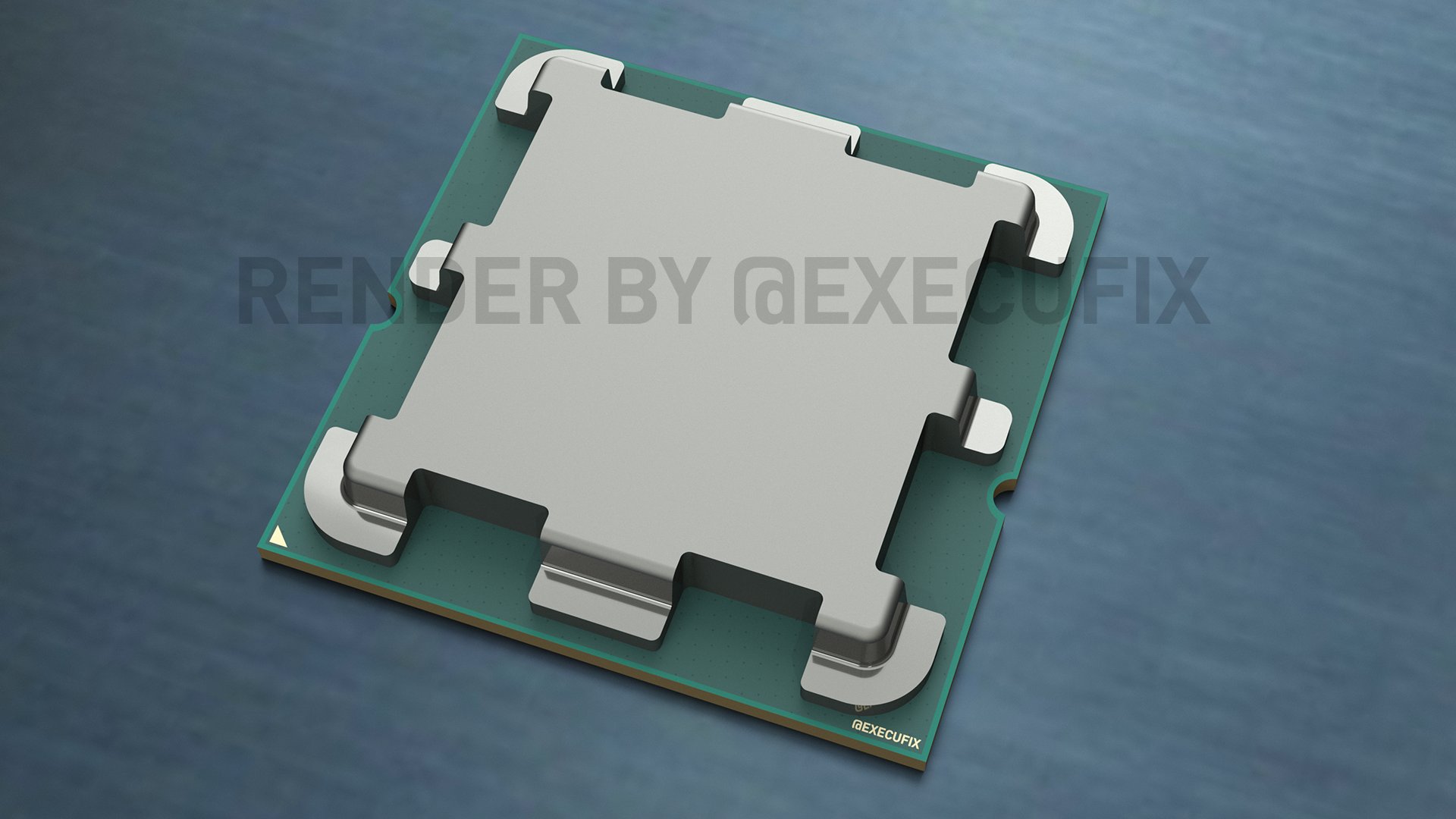ExecutableFix, the leaker with an excellent track record that brought us the first news of AMD’s Zen 4 chips, has shared some homemade renders of how the processors may look based on his knowledge of the silicon. Because these are unofficial renders, and even the author admitted that some aspects may be inaccurate or not to scale, take them with a grain of salt.
The hardware leaker previously stated that the AM5 socket measures 40 x 40mm, the same size as the current AM4 socket. This implies that existing AM4 cooling solutions should work for AMD’s upcoming socket. According to ExecutableFix, Zen 4 processors are roughly 1mm taller than current Ryzen chips. Therefore, a mounting converter kit will likely be required for AM4 coolers to support AM5.
It could just be the perspective from which the renders were made, but the IHS (integrated heat spreader) looks pretty thick compared to AMD’s Zen 3 chips. More importantly, the purported Zen 4 design doesn’t have a full-cover IHS. Instead, the processors reportedly feature a radical new design with multiple cutouts on each side. For the time being, we don’t know the motivation for the cutouts. These could be for unique capacitor or SMD placements, but we don’t know whether this will affect heat transfer.
Image 1 of 3
Image 2 of 3
Image 3 of 3
The most substantial change with Zen 4 doesn’t reside within the IHS itself, but rather with what’s underneath the processor die. The AM5 socket reportedly marks AMD’s departure from a Pin Grid Array (PGA) design to a Land Grid Array (LGA). This basically means that the pins are no longer on the processor, so consumers don’t have to worry about bending any pins during installation. However, they still have to be careful since there are other ways to ruin a processor.
Zen 4 processors are rumored to arrive with 1,718 contacts, representing a 29.1% increase over Zen 3. The additional contacts will come in handy for AMD to offer new features, such as dual-channel DDR5 support and improved connectivity. That reportedly includes 28 high-speed PCIe 4.0 lanes, four more than Zen 3. There is also talk of Zen 4 chips maxing out with a 120W TDP and stretching up to 170W for a special edition part. Thus, the extra contacts could also help with power delivery.
Raphael is the codename that’s being thrown around to refer to AMD’s Zen 4 processors. It’s still up in the air on how the chipmaker will market its future processors. Some think that AMD will follow through with the Ryzen 6000, which makes sense in a chronological sense since current Ryzen products carry the Ryzen 5000 moniker. Others claim that AMD will jump to Ryzen 7000, which also wouldn’t be unheard of given the company’s Ryzen 4000/5000 branding shenanigans. In any event, Zen 4 should be another remarkable microarchitecture for the company.
